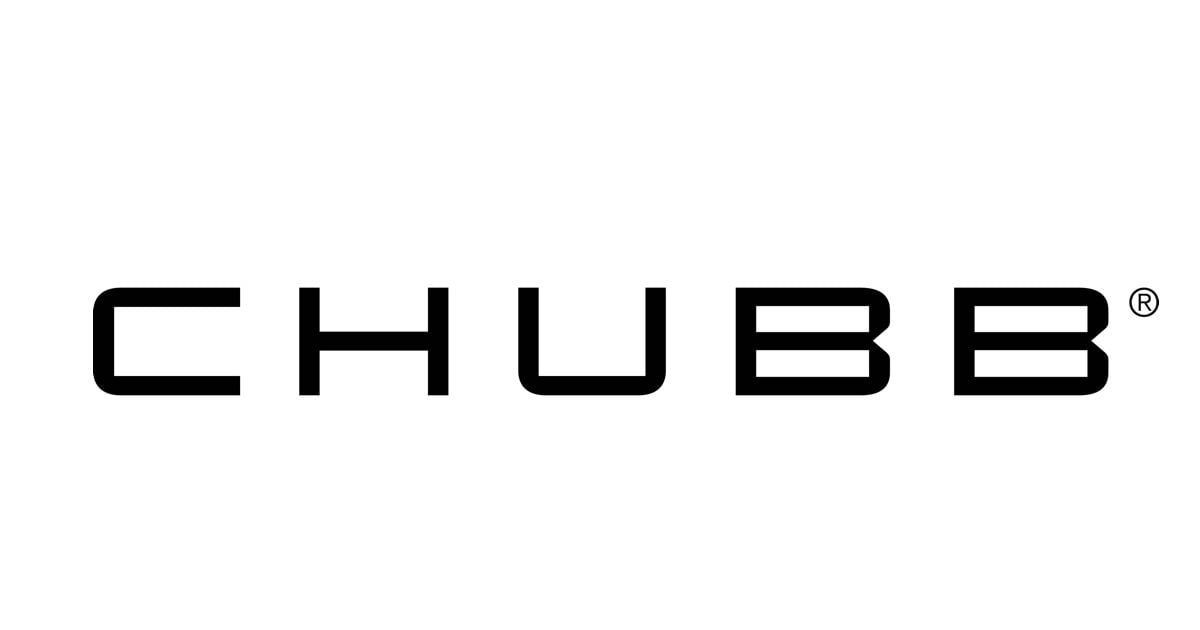Nerdy takeaways
Chubb is the top-rated insurer in Colorado, offering the best coverage for high-value homes.
Amica offers the best customer experience.
State Farm is our top pick for most people.
Cincinnati Insurance draws the fewest consumer complaints.
USAA is our top choice for military families.
Colorado homeowners face a number of risks, including wildfires and hailstorms. Partly because of those risks, Coloradans pay some of the highest homeowners premiums in the country. To help you find the best home insurance in Colorado, we gathered and analyzed data from insurance companies across the state.
Note: Some insurance companies included in this article may have made changes in their underwriting practices and no longer issue new policies in your state. Even if an insurer serves your state, it may not write policies for all homes in all areas.
The best home insurance companies in Colorado
Best Coverage for high-value homes

Chubb
- Far fewer consumer complaints than expected for a company of its size.
- Standard coverage includes features that many companies offer only as extras.
- Perks to help you protect your home.
- Most consumers can't get a quote online and will instead need to contact a local agent.
Why it’s worth a look: Chubb’s policies are designed for high-value homes. They include generous coverage for your belongings and the structure of your home, and high limits are available. Included in your policy is HomeScan, which uses infrared technology to look for leaks and other problems behind your walls.
Standout feature: Chubb offers free Wildfire Defense Services to its policyholders in Colorado. These services include personalized recommendations for protecting your home from fires. If a wildfire is near, the service can send firefighters to your home to help.
Average rates: Not available.
» READ MORE: Chubb homeowners insurance review
Best customer experience

Amica
- High customer satisfaction ratings and low consumer complaints.
- Platinum Choice package offers extra coverage.
- Dividend policies can return a portion of your premiums.
- You can start a quote online but may have to finish the buying process by phone.
Why it’s worth a look: Amica’s excellent customer service has earned it high ratings in recent J.D. Power satisfaction surveys. The company website makes it easy to manage your policy, pay bills and file claims. Need help? Amica has a variety of customer service channels, including live chat, phone and even in-person offices.
Standout feature: The Platinum Choice package is Amica’s most comprehensive homeowners policy. It includes extra coverage for the structure of your home and for valuables like jewelry and computers.
Average rates: Not available.
» READ MORE: Amica homeowners insurance review
Best for most people
State Farm
- User-friendly website.
- Agents offer personalized service.
- Policies generally include extra coverage for your home’s structure.
- Below average for claim satisfaction in a recent J.D. Power study.
Why it’s worth a look: As the nation’s largest home insurer, State Farm is a solid pick for many consumers. Its default homeowners policy comes with a coverage cushion in case your home costs more to rebuild than expected. Plus, the company offers a long list of ways to customize your policy.
Standout feature: State Farm policyholders can get a free Ting smart plug. This device tracks your home’s electrical network to help prevent fires.
Average rates: Below are the average annual rates for a range of dwelling coverage limits.
Dwelling coverage amount | Average annual rate |
|---|---|
$300,000 | $3,380 |
$400,000 | $4,050 |
$500,000 | $4,740 |
$600,000 | $5,360 |
$700,000 | $5,915 |
» READ MORE: State Farm homeowners insurance review
Fewest complaints

Cincinnati Insurance
- Various coverage options.
- Far fewer complaints than expected for a company of its size.
- Coverage available for higher-value homes.
- No online quotes.
- Very little information on website.
Why it’s worth a look: Cincinnati draws one of the lowest rates of consumer complaints among all the insurers we analyzed. It sells policies through independent agents, who can help you tailor your coverage to meet your needs.
Standout feature: Cincinnati policyholders may be eligible for discounts on water shut-off devices. These devices detect leaks and turn your water off to prevent damage to your home.
Average rates: Not available.
» READ MORE: Cincinnati homeowners insurance review
Best for military families

USAA
- Policies include standard coverage that often costs extra elsewhere.
- Fewer customer complaints to state regulators than expected for a company of its size.
- Perks for military homeowners.
- Available only to active military members, veterans, some federal employees and their families.
Why it’s worth a look: USAA sells home insurance to active military, veterans, some federal workers and their families. Its policies cover military uniforms and equipment without a deductible.
Standout feature: USAA covers your belongings on a replacement cost basis. If they’re stolen or destroyed, the company will pay enough for you to buy brand-new replacements. Some other companies pay less for older items that have lost value over time.
Average rates: Below are the average annual rates for a range of dwelling coverage limits.
Dwelling coverage amount | Average annual rate |
|---|---|
$300,000 | $3,655 |
$400,000 | $4,555 |
$500,000 | $5,310 |
$600,000 | $5,690 |
$700,000 | $6,030 |
*USAA homeowners policies are available only to active military, veterans and their families. | |
» READ MORE: USAA homeowners insurance review
Other top home insurance companies in Colorado
These home insurance providers are also worth a look.
Company | NerdWallet star rating | Average annual rate |
|---|---|---|
$8,925 | ||
$2,640 | ||
$3,845 |
Common Colorado home insurance problems
Homeowners in Colorado may encounter some of the following issues.
High prices and limited availability. Home insurance prices have been rising dramatically in Colorado, largely due to the state’s high risk of hail and wildfire damage. Some homeowners are having trouble finding insurance at all. The state recently created a last-resort insurer that offers coverage to people who can’t get it anywhere else. (Learn more about it below.)
Hail. Colorado gets more hailstorms than nearly any other state, according to the National Severe Storms Laboratory. Most home insurance policies will pay for damage from hail, including damage to your roof. Your home insurance deductible will apply. (A deductible is the part of a claim you’re responsible for paying.)
Wildfires. Over the past three decades, wildfires in Colorado have grown larger and more frequent, according to a study by Colorado State University. Most home insurance policies cover fire and smoke damage, but homeowners in high-risk areas may have a hard time finding coverage. Read more about wildfire insurance.
Know your rights as a Colorado homeowner
By Colorado law, these requirements apply if a wildfire destroys your home:
Insurers must pay for at least two years of additional living expenses if you need to live somewhere else while your house is rebuilt.
You have three years after your insurer’s initial claim payment to send in rebuilding invoices and receipts for replacement belongings.
You may use your claim funds to rebuild in the same location, build a home in a different location or buy an existing home somewhere else.
You can get a claim payout of at least 65% of your personal property limit without having to itemize everything you lost. However, you can still submit a list to get a full payout. (Learn how to create a home inventory.)
Flooding. Colorado sees 20 to 30 major floods each year, according to Planning for Hazards, a state government website. Homeowners insurance typically won’t cover flood damage. If you live in a high-risk zone, your mortgage lender will likely require you to buy flood insurance. But you could be at risk no matter where you live, so the coverage may still be worth considering.
To check your flood risk, start with the federal government’s flood maps. However, these maps don’t always capture all types of flood risk. You may want to check another source such as First Street, a company that models climate hazards. Enter your address at the top of the page to see your home’s flood risk rating.
Colorado FAIR Plan
The Colorado FAIR Plan is the state’s insurer of last resort, available to property owners who can’t find coverage elsewhere. To get a policy, you must:
Show proof of denial from three separate private insurers.
Work with a licensed agent to submit your application.
Policies from the Colorado FAIR Plan only offer actual cash value and have a limit of $750,000 in coverage. This is a combined limit, which means the amount is designed to cover both your dwelling and your personal property. When you buy a policy, you can decide what percentage of the coverage (from 0 to 40%) would apply to your belongings.
Many FAIR plans state that coverage is offered on an actual cash value basis only. So if you make a claim, you’ll be offered what your home and belongings were worth, not what it would cost to replace or rebuild them.
Common optional coverage
A standard homeowners policy can sometimes fall short, so it's worth looking for ways to make it more comprehensive. For example, we recommend asking if your insurer offers extended or guaranteed replacement cost coverage for your home. These add-ons give you extra dwelling coverage in case it costs more than you expect to rebuild your home after a disaster. Having this coverage can be a useful hedge against inflation.
Here are a few additional types of coverage you may want to buy.
Floods are the most common weather disaster in the U.S. and can happen anywhere, not just coastal areas. You can buy flood insurance through the federal government or from private companies. Learn whether you need flood insurance.
Homeowners policies generally won’t cover damage if a drain backs up into your home or your sump pump fails. Adding water backup coverage can help with these issues.
Homeowners policies may cover your stuff on an actual cash value or replacement cost basis. With actual cash value, the policy will pay less for older items that have lost value over time. To get enough of a claim payout to buy brand-new items, opt for replacement cost coverage.
If you have expensive jewelry, fine art or other valuables, you may need extra insurance for them. Learn more about scheduled personal property coverage.
Service line coverage pays to fix damaged water, gas, sewer or other underground lines on your property.
If your HVAC system or another major appliance fails, equipment breakdown coverage can help pay for repairs.
How much does homeowners insurance cost in Colorado?
The average cost of homeowners insurance in Colorado is $4,605 per year, or about $384 per month. That's 53% more expensive than the national average of $3,005 per year for the same amount of coverage.
These rates are based on a sample home insurance policy with $500,000 in dwelling coverage, $300,000 in liability coverage, a $1,000 deductible and no recent claims.
Did you know...
The dwelling coverage limit on your policy should be the amount it would take to rebuild your home, based on the cost of labor and construction in your area. It won't necessarily be the price you paid for the house or how much you could sell it for now. Use our calculator to estimate your home's rebuilding cost.
The median rebuilding cost for Colorado homes is $470,625, according to data from First Street.
Below are the average rates for policies with various dwelling coverage limits.
Dwelling coverage amount | Average annual rate |
|---|---|
$300,000 | $3,395 |
$400,000 | $3,910 |
$500,000 | $4,605 |
$600,000 | $5,375 |
$700,000 | $6,030 |
The rates above are for homeowners with good credit. In Colorado, policyholders with poor credit pay an average of $7,970 per year — an increase of 73%.
Average cost of homeowners insurance in Colorado by city
The amount you pay will vary depending on where you live in the state. For example, the average cost of homeowners insurance in Denver is $7,395 per year, while Grand Junction homeowners pay $3,185 per year, on average.
City | Average annual rate | Average monthly rate |
|---|---|---|
Arvada | $6,835 | $570 |
Aurora | $7,010 | $584 |
Boulder | $5,725 | $477 |
Brighton | $6,785 | $565 |
Broomfield | $6,065 | $505 |
Castle Rock | $7,245 | $604 |
Colorado Springs | $7,340 | $612 |
Commerce City | $7,255 | $605 |
Denver | $7,395 | $616 |
Englewood | $6,770 | $564 |
Erie | $5,655 | $471 |
Fort Collins | $5,315 | $443 |
Fountain | $7,575 | $631 |
Grand Junction | $3,185 | $265 |
Greeley | $5,580 | $465 |
Lafayette | $5,580 | $465 |
Littleton | $7,170 | $598 |
Longmont | $5,455 | $455 |
Loveland | $5,030 | $419 |
Parker | $7,900 | $658 |
Pueblo | $8,350 | $696 |
Thornton | $6,785 | $565 |
Westminster | $6,770 | $564 |
Wheat Ridge | $7,010 | $584 |
Windsor | $5,420 | $452 |
The cheapest home insurance in Colorado
Here are the insurers we found with the cheapest rates for a variety of dwelling coverage limits.
Company
NerdWallet star rating
Average annual rate
Grange Insurance Association
Not rated
$1,600
$2,380
$2,600
$3,380
$3,655
*USAA homeowners policies are available only to active military, veterans, some federal workers and their families.
Company
NerdWallet star rating
Average annual rate
Grange Insurance Association
Not rated
$2,180
$2,500
$3,265
Colorado Farm Bureau
Not rated
$3,765
$3,985
Company
NerdWallet star rating
Average annual rate
$2,640
Grange Insurance Association
Not rated
$2,645
Colorado Farm Bureau
Not rated
$3,800
$3,845
$4,740
Company
NerdWallet star rating
Average annual rate
$2,810
Grange Insurance Association
Not rated
$3,170
Colorado Farm Bureau
Not rated
$3,830
$5,360
$5,690
*USAA homeowners policies are available only to active military, veterans, some federal employees and their families.
Company
NerdWallet star rating
Average annual rate
$2,960
Grange Insurance Association
Not rated
$3,695
Colorado Farm Bureau
Not rated
$3,870
$5,915
$6,030
*USAA homeowners policies are available only to active military, veterans, some federal employees and their families.
Cheap homeowners insurance in Colorado by claims history
Here are the cheapest home insurance companies in Colorado for homeowners who've filed a recent claim.
Company | NerdWallet star rating | Average annual rate |
|---|---|---|
Grange Insurance Association | Not rated | $2,720 |
$2,910 | ||
Colorado Farm Bureau | Not rated | $3,800 |
$3,845 | ||
$4,740 |
These rates are based on a sample homeowner with good credit, $500,000 of dwelling coverage, $300,000 of liability coverage and a $1,000 deductible.
Cheap homeowners insurance in Colorado by credit score
Here are the cheapest home insurance companies in Colorado for homeowners with poor credit. Read more about how your credit scores impact home insurance rates.
Company | NerdWallet star rating | Average annual rate |
|---|---|---|
Colorado Farm Bureau | Not rated | $3,915 |
$4,040 | ||
Grange Insurance Association | Not rated | $5,325 |
$9,480 | ||
$7,400 | ||
*USAA homeowners policies are available only to active military, veterans, some federal employees and their families. | ||
These rates are based on a sample home insurance policy with $500,000 in dwelling coverage, $300,000 in liability coverage, a $1,000 deductible and no recent claims.
Get home insurance quotes in minutes
Answer a few questions to see custom quotes and find the right policy for you.Common discounts
Many insurers offer savings if you buy more than one policy, such as home and car insurance. See our picks for the best home and auto insurance bundles.
Got a burglar alarm, smoke detectors or a smart device that alerts you if you have a leak? Safety and security features like these could earn you a discount.
Sign up for paperless billing or set your premiums to autopay, and you could get a discount.
Many insurance companies give discounts to customers who’ve gone a certain number of years without filing a home insurance claim.
Some insurers offer discounts to new policyholders or reward those who’ve stuck around for a while.
Teachers, doctors, members of the military and others may be eligible for discounts from certain insurers.
Learn more about common home insurance discounts.
Colorado Division of Insurance
Visit Colorado’s Division of Insurance website to file a complaint against your insurer or learn how insurance works. The website also lets homeowners compare insurance premiums. Help is available at 800-930-3745.
How we review home insurance
Our editorial team considers these factors when rating homeowners insurance companies:
This part of our star rating is based largely on consumer complaints to state regulators, as reported by the National Association of Insurance Commissioners. When available, we also include each company’s performance in the most recent J.D. Power Home Insurance Study. Other factors in our consumer experience score include customer-friendly features such as online claims filing and quotes.
We use AM Best and Demotech ratings to confirm each insurer’s long-term financial stability and ability to pay claims.
Companies score higher if they offer many common endorsements and include more comprehensive coverage in their standard plans. In particular, we look at features such as extended coverage for the structure of your home and replacement cost coverage for personal belongings.
We evaluate how many of the most common home insurance discounts each company offers.
See our complete homeowners insurance rating methodology.
Frequently asked questions
Colorado home insurance costs an average of $384 per month, or $4,605 per year. This average rate is for homeowners with $500,000 of dwelling coverage, good credit and a $1,000 deductible.
To save on your premium, ask your insurer if you qualify for any home insurance discounts.
Home insurance isn’t required by law in Colorado. But if you have a mortgage, your lender will likely require that you carry it. For more information, read Is Homeowners Insurance Required?
Your home insurance policy may cover mold if the damage is from a sudden, accidental event. But if the mold is due to water damage caused by your negligence, you’re likely responsible for its removal. Learn more about whether homeowners insurance covers mold.
NerdWallet writers are subject matter authorities who use primary, trustworthy sources to inform their work, including peer-reviewed studies, government websites, academic research and interviews with industry experts. All content is fact-checked for accuracy, timeliness and relevance. You can learn more about NerdWallet's high standards for journalism by reading our editorial guidelines.
- 1.Colorado Division of Insurance. Governor Polis and Division of Insurance: We Must Find Innovative Solutions to Save Colorado Homeowners Money on Insurance Costs. Accessed Feb 20, 2026.
- 2.NOAA National Severe Storms Laboratory. Severe Weather 101: Hail Basics. Accessed Feb 20, 2026.
- 3.Regional Economic Development Institute, Colorado State University. Battle Scars: Trends in Wildfire Size and Impact Across Colorado. Accessed Feb 20, 2026.
- 4.General Assembly of the State of Colorado. House Bill 22-1111 2022. Accessed Feb 20, 2026.
- 5.Planning for Hazards: Land Use Solutions for Colorado. Flood. Accessed Feb 20, 2026.
Star rating methodology
NerdWallet’s homeowners insurance ratings reward companies for customer-first features and practices. Ratings are based on weighted averages of scores in several categories, including financial strength, consumer complaints, coverage, discounts, claims process and website functionality. These ratings are a guide, but we encourage you to shop around and compare several insurance quotes to find the best rate for you. NerdWallet does not receive compensation for any reviews or star ratings.
Here’s how we weighted each category to come up with our list of the best home insurance companies:
Consumer experience (40%).
Financial strength (30%).
Coverage (25%).
Discounts (5%).
Read our full home insurance ratings methodology for more details.
Homeowners insurance rates methodology
NerdWallet calculated median rates for 40-year-old homeowners from various insurance companies in ZIP codes across all 50 states and Washington, D.C. All rates are rounded to the nearest $5.
Sample homeowners were nonsmokers with good credit living in a single-family, two-story home built in 1984. They had a $1,000 deductible and the following coverage limits:
$500,000 in dwelling coverage.
$50,000 in other structures coverage.
$250,000 in personal property coverage.
$100,000 in loss of use coverage.
$300,000 in liability coverage.
$1,000 in medical payments coverage.
We made minor changes to the sample policy in cases where rates for the above coverage limits or deductibles weren’t available.
In states where credit is a rating factor, we changed the credit tier from “good” to “poor,” as reported to the insurer, to see rates for homeowners with poor credit.
In select states, we added a single wind damage claim to see rates for homeowners with a claim on their record.
These are sample rates generated through Quadrant Information Services. Your own rates will be different.
Complaint methodology
NerdWallet examined complaints received by state insurance regulators and reported to the National Association of Insurance Commissioners in 2022-2024. To assess how insurers compare with one another, the NAIC calculates a complaint index each year for each subsidiary, measuring its share of total complaints relative to its size, or share of total premiums in the industry. To evaluate a company’s complaint history, NerdWallet calculated a similar index for each insurer, weighted by market shares of each subsidiary, over the three-year period.
NerdWallet conducts its data analysis and reaches conclusions independently and without the endorsement of the NAIC. Ratios are determined separately for auto, home (including renters and condo) and life insurance.
Rebuilding cost methodology
The median home rebuilding cost referenced above is based on 2025 replacement cost data from First Street, a climate risk modeling firm. Actual replacement costs may vary based on factors like location, square footage, construction materials, the age of your home and local labor costs.





